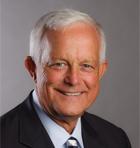
By Harvard Business School Professor Kevin Sharer, Former Amgen Chairman & CEO
Bill floated on air as he headed out of his office, toward the bar down the street. His annual review had exceeded his highest hopes. He knew he was good, but this confirmed to him that others knew it too.
“Your achievements this year have surpassed those of any of your peers. Without question, you have what it takes to go far, perhaps even to the top,” said the Boss.
“Just one piece of advice though. It’s time for you to adopt a more serious demeanor. A little less London playboy, a little more company leader. Your peers and the partners should begin to see you as worthy of a rapid ascent.”
Bill, an exceptionally capable professional with a major financial services firm had started his pattern of success as an all-state athlete in high school, followed that with top grades in college and law school. Now he found himself in a great spot three years into his career with the firm. He was socially confident, had a wry sense of humor and plenty of friends. 
As he entered the bar, Bill spotted one of those friends. He had called Carl to meet him right after he had finished his review meeting. Carl was a good fifteen years older than Bill and had always been a valuable advisor, even mentor to Bill. Bill needed to share his success.
Approaching Carl, shaking his hand and at the same time ordering his regular from the bartender, Bill suddenly felt his excitement subside, replaced with a quiet concern.
“Have you ever gone for something, given it all you had and yet, missed the mark? Jeez, what would that feel like?” he asked Carl as he settled onto the barstool.
Was Bill, perhaps for the first time in his life, experiencing a fear of failure? More likely, he was beginning to explore, with honesty and courage, a subject rarely discussed: the costs of aiming high.
Bill had alluded to one of the downsides – the possibility of failure, resulting in disappointment, embarrassment and even reduced options going forward. Not that Bill really expected to fail. It’s just that there are so many variables out of your control!
Carl leaned forward, listening intently as Bill described his session with the Boss. He nodded as he came to understand the source of Bill’s strange question.
“I completely agree with your boss’s assessment of you,” said Carl. “I’ve told you essentially the same things myself, though you might have thought I was just being supportive. And yes, I have experienced humiliating and embarrassing failures, both professional and personal. There are real costs to aiming high and not just the obvious ones.”
Bill and Carl listed some of those costs: (1) the pressure to grow continuously, (2) the requirement that you take risks, (3) the resiliency required to handle new situations, new assignments, unexpected circumstances, (4) the importance of building political capital and shrewdness, (5) long hours and missed time with family and the relentless pressure to be strong and to compete to win.
Carl observed that Bill showed great maturity by turning his recent success into a serious reconsideration of his objectives. He encouraged Bill to ask himself this question: Deep down, do I really want to aim as high as my capabilities could take me? Is the view worth the difficult climb?
So how might Bill answer this question and make a decision, at least for this time in his life? How might he reevaluate the question as he progresses in his career?
He might examine his priorities, looking back at himself from the vantage point of his future successful self. As a successful senior executive he might realize that though this path was very lucrative it was certainly not mainly about money. How will he answer these questions? Has this journey brought out my best self? Will I have done something really worthwhile? Have I made a positive difference in the world? Was I able to be a good partner, father and friend? Was I joyful in my pursuit or was it an endless slog? Was the lost time with family, the constant change, the series of demanding, sometimes remote bosses, the pressure to deliver, etc., etc, too emotionally taxing or was it a welcome set of challenges that allowed me to grow as a human being?
More questions: How much do I really want to change and grow? So much that I can honestly seek tough feedback, embrace the criticism and own the change required? Can I evolve to handle more scope, complexity and pressure? Can I push to become ever more efficient? Can I choose, coach, encourage and sometimes replace team members? With none of these skills in my arsenal now, can I work to develop them even while I keep up my own performance. Do I understand and accept the risks ahead? The firm could be acquired, my boss could be fired, my company’s current competitive position could be eclipsed by technology, regulation or by a more aggressive player.
Carl reminded him that the most important risks are those involving Bill’s personal welfare. Will he keep his balance, his health and his relationships or instead might he realize one day that his best years are behind him, that his partner has moved on, his children are grown and his friends are now strangers? Real risks. Certainly not inevitable. But the capacity to reduce these risks requires commitment, skill and daily decision-making.
Bill looked a bit discouraged as he prepared to leave the bar.
Carl patted Bill on the shoulder as they walked out of the bar. “You wouldn’t be happy doing something that doesn’t require your best self.” Carl said. “Don’t be afraid. Do be aware. This is a long trip with many chances to reevaluate, seek help, correct your course or even alter your goals. One thing is for sure, unless you aim high to start you will never enjoy the view! In my experience, leading a company that really matters is worth the climb. Sure there are challenges, but you can handle them if you are alert, self-aware and have the advice, support and love of those you really trust and who care about you. But that’s a discussion for another day my friend.”



